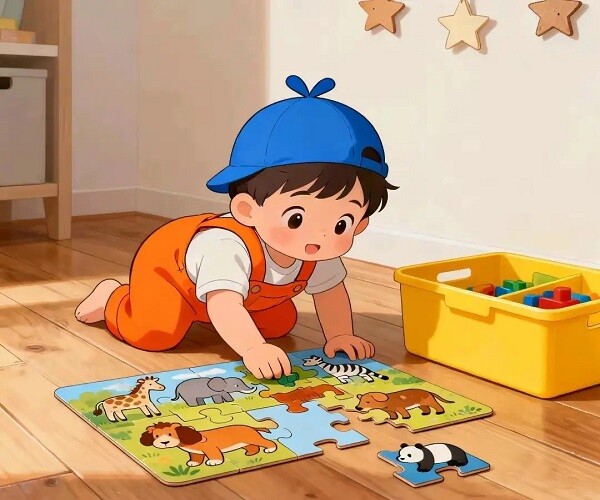However, this overprotective and overly interventionist approach often hinders a child’s development. In reality, parents being “tough” at the right moments and not intervening in certain matters can help their children progress in the future. Therefore, there are five things parents need to learn to let go of.


Don’t rush to intervene in daily tasks like dressing and eating
From the age of two or three, children already have the desire to do everything themselves, such as dressing, eating, and washing their hands. However, many parents feel their children are slow or unable to do things well, so they quickly take over.
For example, if a child buttons their shirt incorrectly, parents immediately rush to fix it. If a child spills food, parents quickly feed them. This approach seems to be in the child’s best interest, but in reality, it unintentionally deprives them of the opportunity to develop self-care skills.
Children can only master these basic life skills through trial and practice. Parents being “firm” and not intervening, allowing children to do things themselves, may cause some initial difficulties, but over time, children will become more skillful and develop better self-care abilities.
Moreover, the sense of accomplishment and confidence gained from completing these tasks independently is crucial for a child’s development.


Don’t rush to intervene in children’s conflicts
When children play together, conflicts are inevitable, such as fighting over toys or pushing each other. Many parents, upon seeing their child upset or in conflict, immediately step in to resolve the issue.
However, conflicts among children are actually great opportunities for them to learn communication and problem-solving skills. Parents being “firm” and not intervening, allowing children to face and resolve these conflicts themselves, can teach them how to express their thoughts and emotions, negotiate and compromise with others, and manage their emotions.
For example, if two children fight over a toy, parents can guide them to discuss solutions, such as taking turns playing together. Through this approach, children learn to solve problems and improve their social skills.


Don’t intervene too deeply in a child’s schedule and study plans
Some parents are very concerned about their child’s education, managing everything from creating study plans to monitoring progress and checking homework. The child’s schedule is so packed that there’s no room for autonomy.
However, studying is the child’s responsibility. Excessive intervention can create dependency and a lack of initiative and self-discipline in learning.
Therefore, parents should be “firm” and limit intervention in scheduling and study plans, allowing children to create their own plans and allocate study time reasonably. This is how children learn to take responsibility for their own learning.
Of course, parents can provide guidance and suggestions when necessary, but they should not intervene excessively. For example, if a child’s study plan is not ideal, parents can discuss it with them and help make adjustments, but the final decision should still be the child’s.


Don’t intervene in a child’s emotions when they face difficulties
Children will undoubtedly encounter difficulties and failures during their growth, such as not scoring well on a test or losing a competition. When a child faces difficulties, many parents feel distressed and try their best to comfort them, even making excuses for them.
In reality, difficulties are an essential experience in a child’s growth process. They teach children how to face challenges, overcome obstacles, and learn from failures.
Parents should be “firm” and not rush to intervene in their child’s emotions when they face difficulties. Let children experience and process these negative emotions themselves.
This will help them gradually become stronger and more mature. For example, if a child does not score well on a test, parents can encourage them to analyze the reasons and summarize the lessons learned, rather than just comforting them by saying, “It’s okay, try harder next time.”


Don’t intervene in a child’s choice of interests
Every child has their own interests and talents. Some parents like to choose extracurricular activities for their children based on their own preferences.
For example, they think playing the piano is elegant, so they enroll their child in piano lessons; or they believe dancing can improve temperament, so they require their child to take dance classes on weekends…
Parents should give children the freedom to choose based on their own interests and passions, which will help them maintain enthusiasm and motivation in learning.
For example, if a child loves drawing, parents should provide the tools and allow them to express themselves freely in their favorite field. This helps children achieve better results more easily.









































